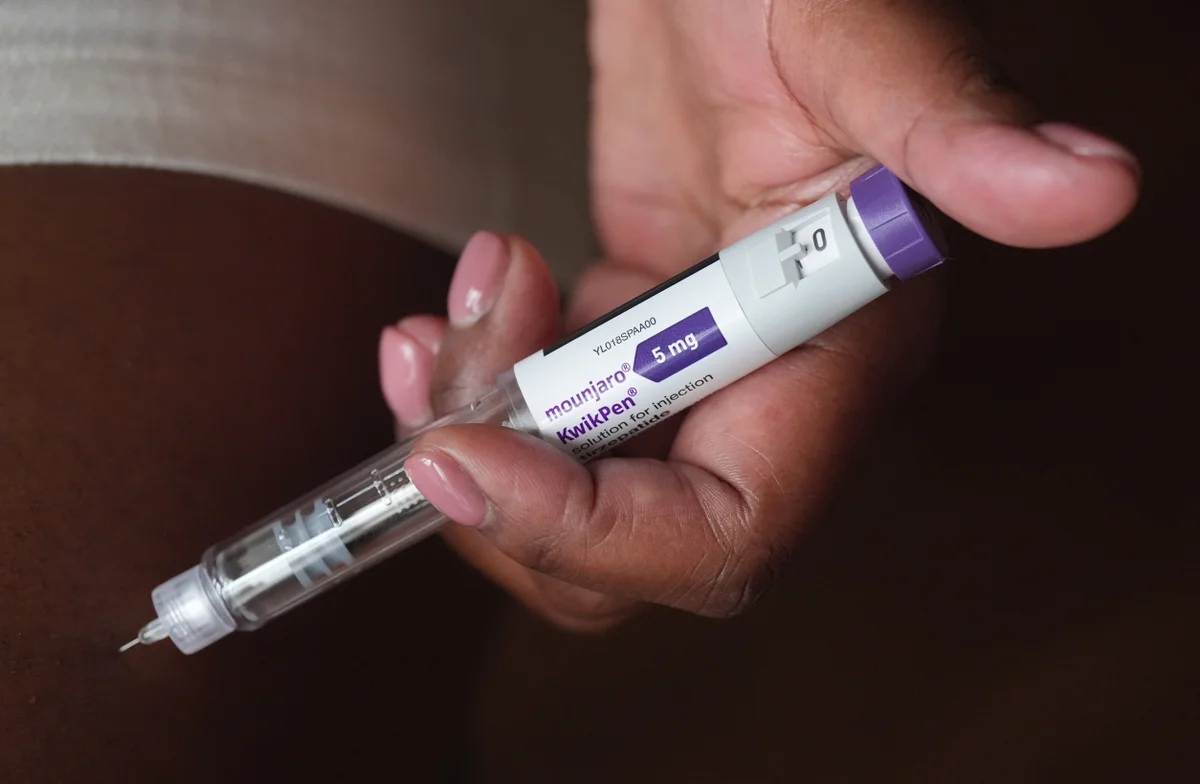By Jane Kirby
Copyright independent

GPs are experiencing a substantial rise in their workload due to patient enquiries about the weight-loss injection Mounjaro, a new poll suggests.
The survey, involving over 1,200 GPs and practice nurses, reveals that one in 25 consultations now include discussions about the drug, either as the primary reason for the appointment or as an additional query.
This surge comes amid earlier research highlighting that thousands of eligible individuals are unable to access Mounjaro via the NHS, hampered by funding issues and a geographical ‘postcode lottery’.
Data compiled by the British Medical Journal (BMJ) shows that fewer than half (18 out of 42) of England’s commissioning bodies have begun prescribing the drug on the NHS, in line with health service guidance.
While NHS England has outlined a phased rollout of Mounjaro over a period of up to 12 years, current data indicates that even patients who meet the eligibility criteria are struggling to obtain the medication.
The vast majority of patients who are currently on Mounjaro pay for it privately.
According to the BMJ study, few integrated care boards (ICBs) have been allocated enough NHS funding for patients who could be treated on the health service.
The latest survey, from Pulse magazine and Nursing in Practice, showed almost one in 10 GPs (9 per cent) and practice nurses (10 per cent) said patients bring up Mounjaro in as many as one in 10 consultations.
One GP told Pulse there has been a “huge influx” of patients wanting to be put on the drug.
But GPs reported that they are often not yet able to prescribe the drug because local ICBs have not set up routes for prescribing it or providing wraparound care for patients.
One GP said: “From June 23 (when rollout began), patients started asking about Mounjaro, but our local integrated care board did not develop a plan before this date.
“It would have helped if that had been done before media announcements.
“Patients were calling up to request appointments to be given (Mounjaro), which then took up a lot of our admin time and time away from other unwell patients.”
Another GP said they were concerned about patients needing to switch from buying the drug privately and asking for it on the NHS.
They said: “Very soon, I anticipate floods of people coming to us saying, ‘I need you to continue this medication for me because I can no longer afford it’.”
Pulse editor Sofia Lind said: “This is yet another example of GPs being left to pick up the workload when national announcements are made but the infrastructure isn’t in place.
“NHS England told ICBs to prepare for the rollout, yet many have not put prescribing routes and wraparound support in place – leaving GPs to manage the frustration and confusion from patients.”
The BMJ study found only nine ICBs had the funding needed to cover at least 70 per cent of their eligible patients.
Four ICBs told the BMJ the NHS funding they had received covered just 25 per cent or fewer of their eligible patients, with Coventry and Warwickshire faring the worst.
That ICB told the BMJ it had received funding to cover just 376 patients, despite identifying 1,795 eligible patients in the first year of rollout.
Eligible patients in the first year include those with a body mass index over 40 and other complicating illnesses such as high blood pressure, obstructive sleep apnoea, cardiovascular disease, and type 2 diabetes.
A Department of Health and Social Care spokesman said: “We expect NHS integrated care boards to be making these drugs, which can help tackle the obesity crisis, available as part of the phased rollout, so those with the highest need are able to access them.
“As we shift the focus from treatment to prevention through our 10-Year Health Plan we are determined to bring revolutionary modern treatments to everyone who needs them, not just those who can afford to pay.”
Health Secretary Wes Streeting has pledged to do more to prevent people being “priced out” of accessing weight loss injections.
He has said he wants more people to get the drugs on the NHS after the manufacturer of Mounjaro said it was putting up prices in the private sector.



